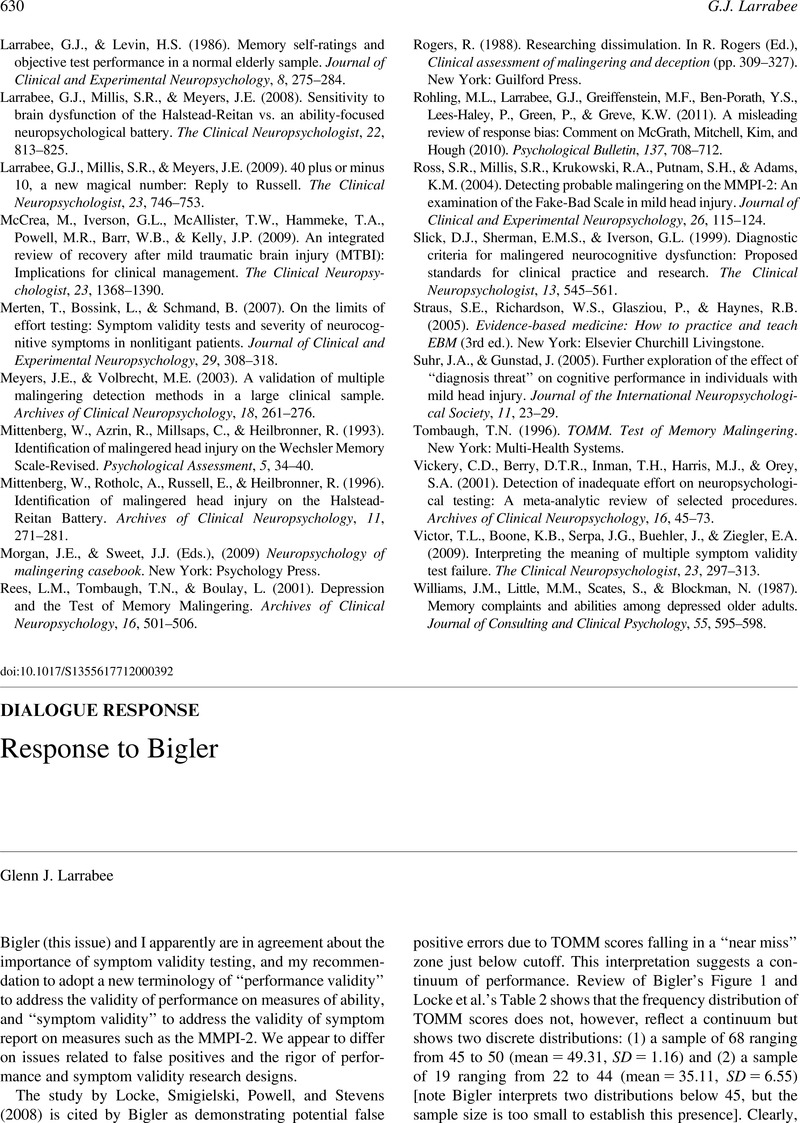Crossref Citations
This article has been cited by the following publications. This list is generated based on data provided by Crossref.
Young, Gerald
2014.
Malingering, Feigning, and Response Bias in Psychiatric/ Psychological Injury.
Vol. 56,
Issue. ,
p.
169.



